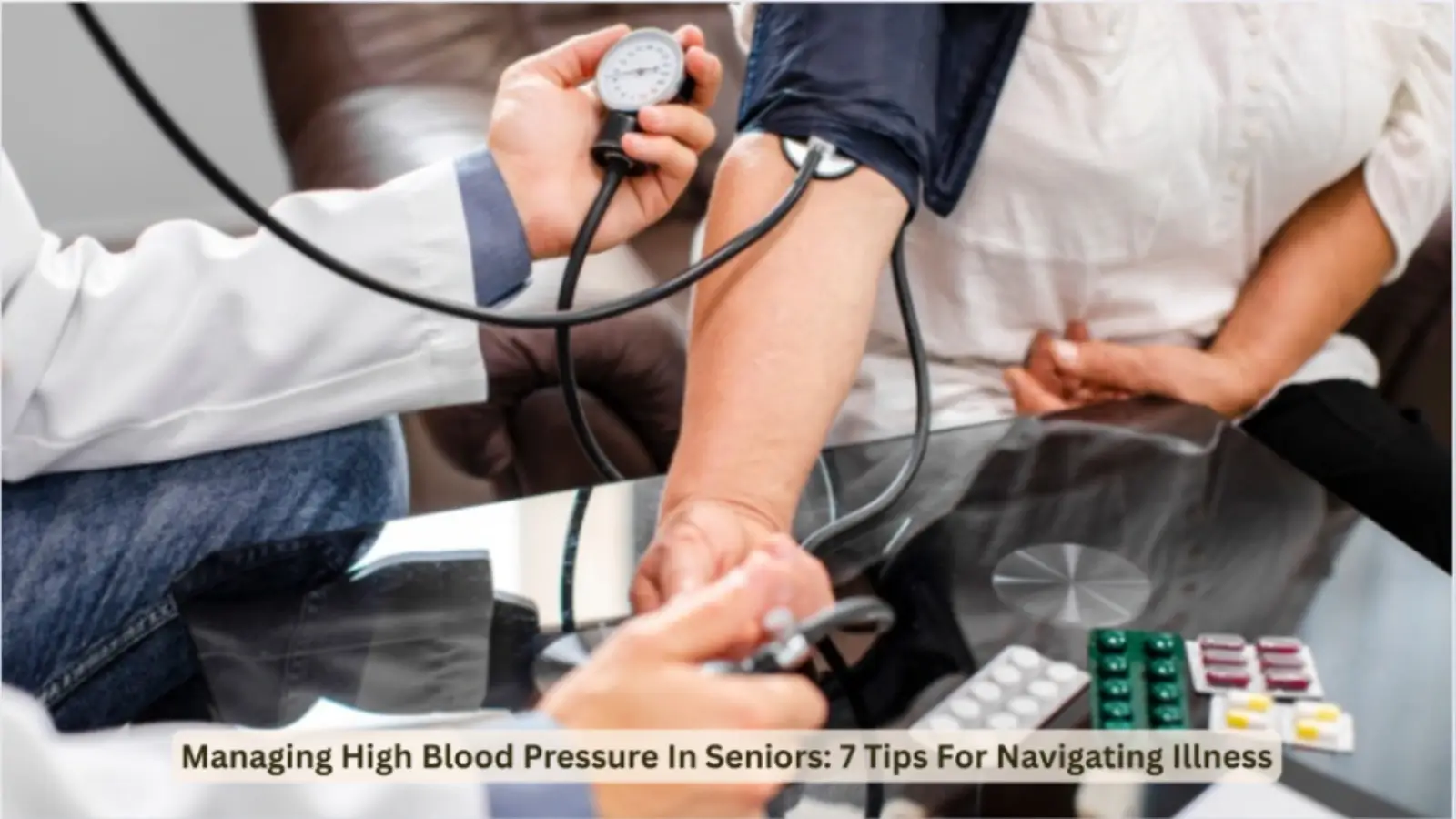


The human cardiovascular system exhibits changes with age. Arteries lose a certain amount of elasticity, vessel walls thicken, and the body’s ability to control the resistance of blood vessels becomes impaired.
These changes are not sudden, but develop steadily over decades, so older people are less adaptable to changes in blood pressure. Even a slight change, as may occur due to infection, dehydration, or pain, can rapidly alter shifts that the young may readily accommodate.
High blood pressure or hypertension already afflicts a large proportion of the elderly. The risk increases when it is coupled with illness. An apparently unthreatening case of the common cold or flu can unbalance elderly hemodynamics, favoring complications, such as a stroke, acute heart failure, or renal dysfunction.
Knowing how to navigate such challenges is important for seniors, caregivers, and healthcare providers. Based on this, we proceed to practical applications. The following seven suggestions will help seniors learn how to manage their high blood pressure effectively.
When seniors fall ill, their blood pressure doesn’t necessarily hold steady.
In fact, recent evidence shows that is blood pressure higher when seniors is sick is a valid concern that deserves close attention. Pathological stress from illness provokes systemic inflammatory, hormonal, and vascular changes. A fever, infection, or even the stress of pain can temporarily elevate readings.
Seniors who already have hypertension could find that response shoves their blood pressure into dangerous territory. Caregivers should check more often when someone is ill, not when they are dizzy or experiencing chest pain.
Self-monitoring plays a crucial role in the management of hypertension for older adults. During illness, it becomes indispensable. Validated digital monitors with large displays are recommended for older people to enable accurate readings and ease of use.
Moreover, record your readings in a log or digital health app and try to take them at the same times each day, typically in the morning and evening. This record will help physicians distinguish between temporary illness-related changes and longer-term trends that may require medication adjustments.
Erratic or no supervision leaves patients and clinicians in doubt and more at risk of undetected emergencies. Creating a systematic job schedule can mean the difference between preventive care and the need to escalate.
Dehydration decreases blood volume, which in some cases paradoxically leads to hypotension. However, it may also result in rebound raises as the heart works to support good circulation. Elderly patients, especially those treated with diuretics, are particularly at risk for this dis-equilibrium.
Promoting regular fluid intake, unless contraindicated by heart or kidney disease, prevents the changes in blood pressure associated with erratic fluid shifts. Studies also suggest that oral rehydration solutions are preferable to water during illness, as they help restore volume and electrolyte balance. It is not just the amount, but also the balance of hydration, which is in turn related to vascular stability.
Decongestants found in over-the-counter cold and flu medicines can raise blood pressure, thereby negating the effect of antihypertensive medications. Even the casual use of painkillers like aspirin or other nonsteroidal anti-inflammatory drugs (NSAIDs) may also impact high blood pressure by creating fluid retention and narrowing of the blood vessels.
It is essential to consult with your doctor before starting any new medication for short-term use. Similarly, antihypertensive medications should not be stopped abruptly unless advised by a healthcare provider. It has been found that abrupt discontinuation of clonidine can result in rebound hypertension, which can be life-threatening in the elderly.
Illness takes its toll on the body, but the psychological toll is often overlooked. Anxiety, disrupted sleep, and stress all raise your blood pressure by stimulating your sympathetic nervous system. Elderly patients in recovery require settings that prioritize rest.
Moreover, caregivers should encourage seniors to make time for rest without feeling guilty, as how quickly one recovers determines how well blood pressure, among other factors, can be controlled.
Diet plays a significant role in how your body responds to illness, as well as in managing high blood pressure. Processed foods are often high in sodium and are convenient to eat during recovery.
In contrast, nutrient-rich choices—such as fruits, vegetables, whole grains, and lean proteins—promote vascular health and immune function. For the elderly in need of good nutrition during an illness, it’s not just about managing blood pressure but about maintaining strength and recovering as quickly as possible.
Small, more frequent meals could be easier to digest and improve appetite. Parents should be advised to continue providing low-sodium meals, even if they are not as appetizing, as this approach also provides the necessary energy and micronutrients.
Older individuals with high blood pressure deal with a chronic condition that gets more complicated during illness. By understanding the connection between illness and vascular instability, monitoring hydration levels, reviewing medications, resting, maintaining a balanced diet, and staying in touch with medical care, seniors can navigate these illness challenges more safely.
In the end, managing hypertension in the elderly is fraught with trying to stay one step ahead and learning to be adaptable. While each disease poses its own unique risks, seniors and those who care for them can take steps to mitigate complications and maintain a high quality of life.